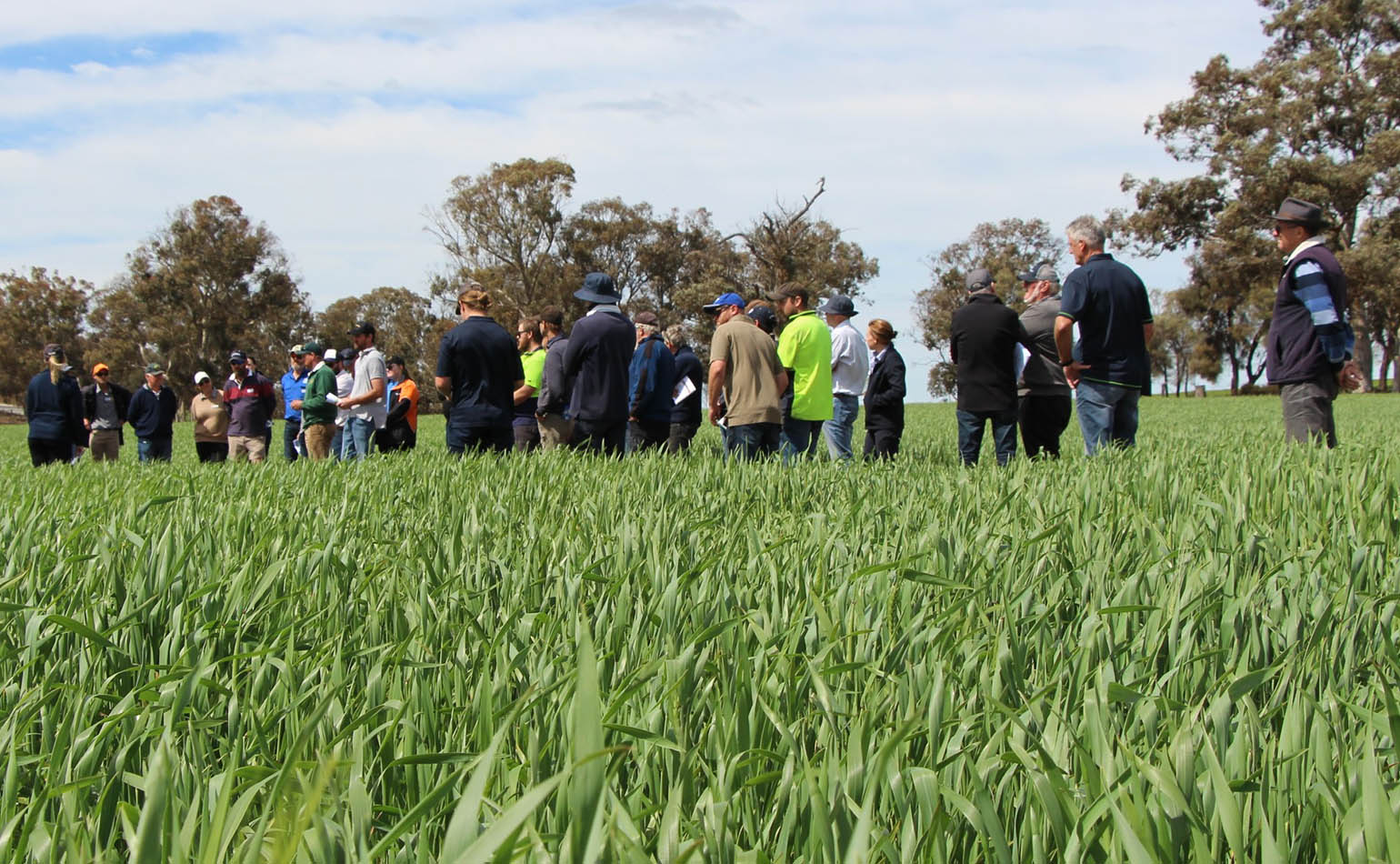The Soil CRC’s Communications Manager caught up with Dr Kelly Pearce, Executive Officer of Facey Group, for a five-minute chat.
Tell us a bit about the Facey Group
The Facey Group is based in Wickepin in Western Australia and we’re 20 years old. It was initially established as a Landcare group and has moved to a not-for-profit, research organisation focussing on agriculture in our local area. We still have a landcare interest, but agronomy and crop nutrition are the main focus along with some livestock research.
The aim of Facey Group is to bring the community together to work towards achieving economic, social and environmental sustainability for the region. It is a forum for people in the district to discuss and question current farming systems and how we can improve them, and to explore and trial new systems and methods.
Facey has 85 members who get access to regular field days, newsletters and events. We host events on topical issues. For example, next week we have an industrial lawyer coming to discuss the new Work Health and Safety legislation that is being brought into WA soon. We have a Spring Field Day where we look at all our trials and in March, we have our annual trials night that recaps all our latest research. We’ve been making changes to make sure we are engaging with younger members, so we are developing more extension and events that are relevant to younger farmers.
Facey Group has a number of trial sites hosted over various properties. We also have a host farmer who hosts a number of sites and this is where we hold our annual Spring Field day. The host farmer is different every year.
What area and type of farming do you cover?
The region that is covered by Facey Group encompasses the Wickepin Shire, but members also stretch into other shires such as Narrogin, Kulin and Dumbleyung.
Within our local catchment, the majority of our producers are sheep and broadacre cropping enterprises. The crops are wheat, barley, lupins, canola and oaten hay.
The rainfall in our area is generally considered to be medium and low to medium.
What type of soil do you have?
Due to early broad scale land clearing of the area, the catchment has issues such as erosion, salinity, and a reduction in biodiversity. It includes an area of discontinuous chains of salt lakes. Rising ground-water levels and resultant salinity threaten the surrounding agricultural land, conservation reserves and water resources.
Our area has a great diversity of soil types. In other parts of Western Australia, they have large areas of more consistent soil types, but here the soil types are varied and inconsistent across even one paddock.
Some of the soils we have are duplex soils and sandy soils – in particular, gutless white sands. The soils really need amelioration. One of our projects with the Soil CRC is looking at the issue of intercropping and cover cropping to help ameliorate some of the issues related to sandy soils. This year, waterlogging has been an issue for our soils. We have well exceeded annual growing season rainfall by 50%.
The Facey Group catchment has many revegetated sites that could provide the opportunity for significant measurement into carbon sequestration, biodiversity and soil improvement.
Why is soil important to your members?
Soil is a big issue for our members. They have a very strong interest in soil health and soil carbon and microbial diversity. Many of our members are interested and engaged in the projects that we are involved in through the Soil CRC.
Why did Facey become a participant in the Soil CRC?
Facey has been involved in the Soil CRC since the initial bid. So, we’re committed! We are member driven, and soil is important to our members, so it was something that we thought would be valuable. It is great to be involved in these research projects. Being a grower group from Western Australia, it is important to ensure that the West is represented in the Soil CRC as well.
What is exciting about working with the Soil CRC?
We are really enjoying sinking our teeth into the new project trials with the Plant based solutions to improve soil performance project, led by Dr Terry Rose of Southern Cross University. This project is looking at a combination of soil amelioration and planting novel shrubs like Lebeckia to increase soil health and productivity. Novel cropping systems isn’t something we have done much of in this area. Being able to have access to high level soil scientists such as Terry and to have access to high quality rigorous science within our area is terrific.
We have also valued working with other grower groups across the country. We are getting access to information about what other groups are doing across Australia that is not yet being done in Western Australia. We are finding out new and novel ways to improve soil health. Our involvement with the Soil CRC places us at the forefront of soil science research.
Recently through another Soil CRC project, we have been granted an Innovation Manager. This will fund an additional staff member for one day a week. They will help drive Soil CRC projects and help roll out innovations to our members. It is such a great opportunity to have someone in house and on the ground.
Projects that Facey are involved in:
Building farmer innovation capability – Phase two (1.4.003)
Visualising Australasia’s Soils: extending the soil data federation (2.3.002)
Plant based solutions to improve soil performance (4.1.002)
Evaluating soil functional resilience (4.1.003)
Evaluating ecosystem’s role in increasing soil carbon and soil resilience (4.1.005)

